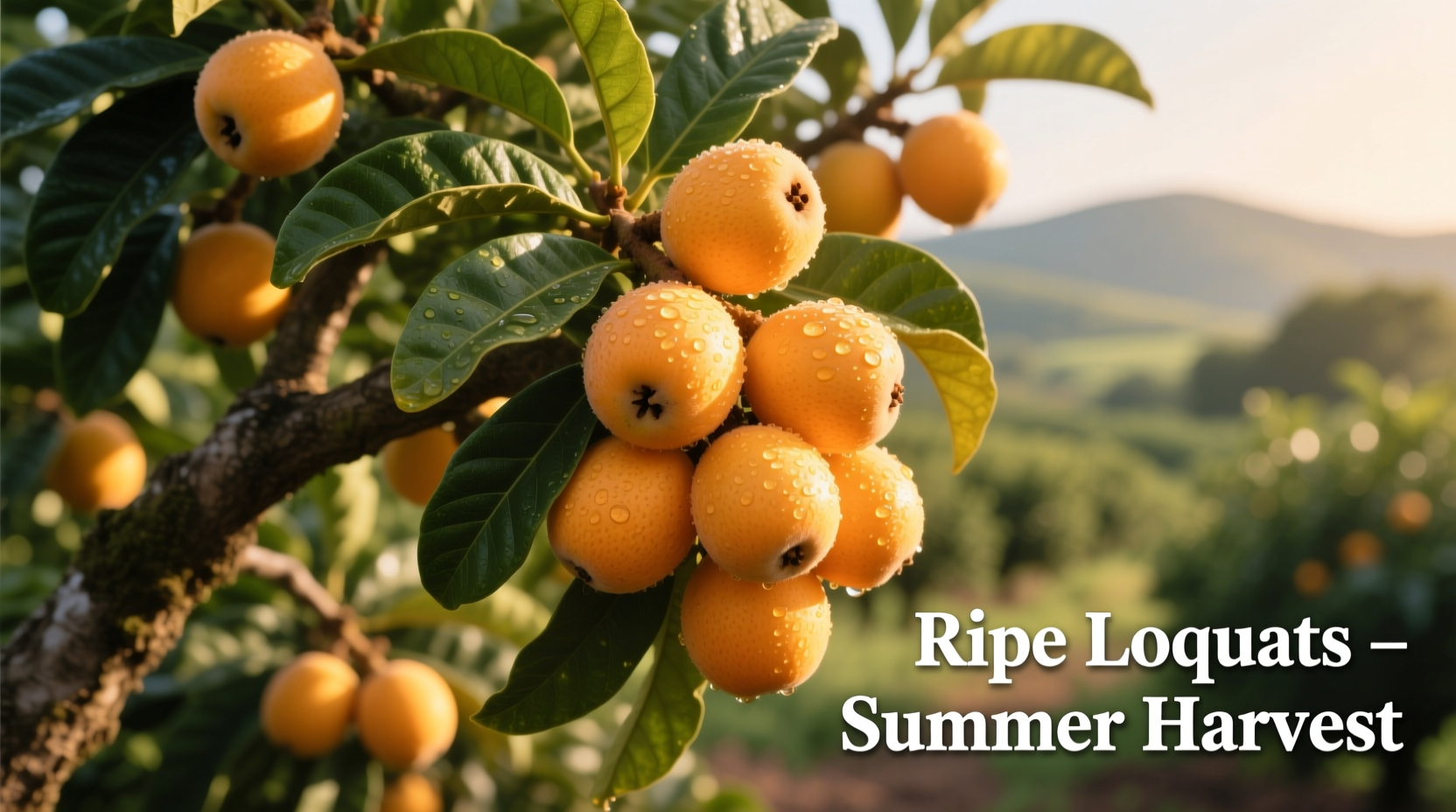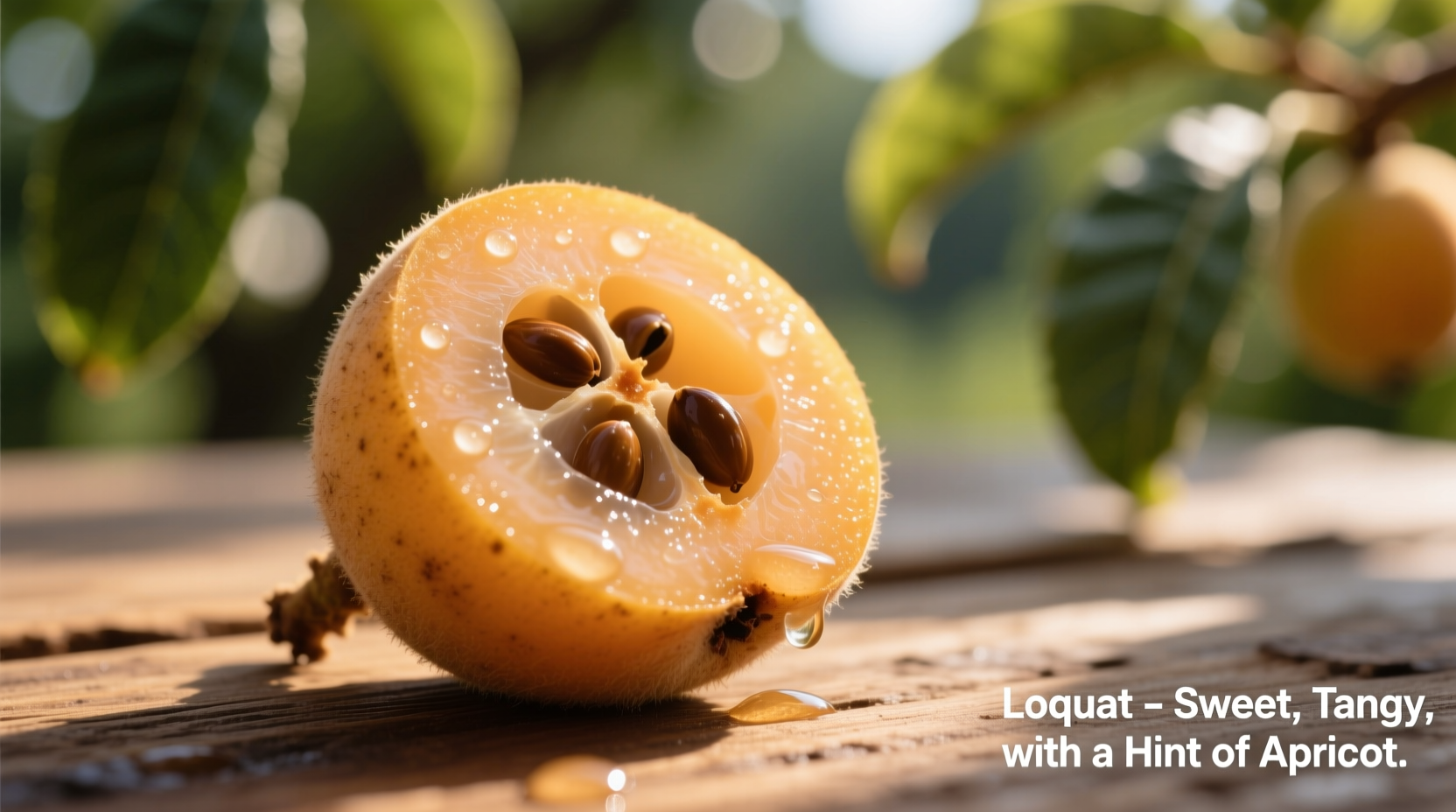Ever bitten into a loquat and wondered, what does a loquat taste like exactly? You're not alone. This golden-orange fruit confuses many first-time eaters with its unique flavor profile that sits between familiar fruits yet stands distinctly apart. Understanding its taste characteristics helps you select perfectly ripe specimens and incorporate them into your culinary repertoire.
Decoding the Loquat Flavor Experience
When perfectly ripe, loquats offer a sophisticated flavor balance that makes them stand out in the fruit world. The initial impression is a bright citrus-like acidity that quickly gives way to honeyed sweetness. This sweet-tart interplay resembles a cross between apricot and plum, but with distinctive floral undertones that many describe as reminiscent of海棠 (Chinese flowering crabapple).
The flavor complexity increases as the fruit ripens. Underripe loquats taste predominantly sour with green apple notes, while overripe specimens become cloyingly sweet with fermented hints. The ideal eating window delivers:
- First impression: Bright citrus acidity
- Middle notes: Apricot-like sweetness with mango undertones
- Finish: Subtle floral aftertaste with mild tannins
Texture and Physical Characteristics
Texture significantly influences the loquat fruit taste experience. Unlike many stone fruits, loquats have smooth, non-fuzzy skin that's technically edible though most prefer to peel it. The flesh ranges from firm and slightly granular when underripe to meltingly tender when perfectly ripe.
| Ripeness Stage | Texture | Flavor Profile |
|---|---|---|
| Underripe | Firm, slightly granular | Pronounced tartness, green apple notes |
| Perfectly Ripe | Smooth, buttery, tender | Balanced sweet-tart with floral notes |
| Overripe | Very soft, almost mushy | Intensely sweet, fermented hints |
Each fruit contains 2-5 large brown seeds that shouldn't be eaten raw due to trace cyanogenic compounds. These seeds contribute subtle almond-like aromatics to the surrounding flesh but remain entirely separate from the edible portion.

Seasonal Availability and Selection Guide
Understanding when do loquats taste best requires knowledge of their seasonal patterns. Unlike many fruits with single harvest windows, loquats follow a predictable maturation timeline:
- Early season (February-March): Fruits appear smaller with pronounced tartness
- Peak season (April-May): Optimal size and balanced sweet-tart flavor
- Late season (June): Larger fruits with deeper sweetness, potential for overripeness
According to agricultural data from the University of California Cooperative Extension, loquat flavor compounds develop most completely during the peak season when day-night temperature differentials maximize sugar accumulation while preserving acidity (UCCE Publication 8510).
Culinary Applications Based on Flavor Profile
The what does loquat taste like when cooked question reveals another dimension of this fruit's versatility. Heat transforms loquat chemistry significantly:
- Raw consumption: Best with perfectly ripe fruit for balanced flavor
- Jams and preserves: Underripe fruit provides necessary pectin and acidity
- Baking: Holds shape better than stone fruits with complementary flavor to almonds
- Savory applications: Pairs surprisingly well with poultry and pork due to mild acidity
Chef Liu Wei notes that in traditional Chinese cuisine, loquats are often paired with rock sugar to enhance their natural floral notes while preserving their delicate texture—a technique developed over centuries of culinary refinement in southern China where the fruit originated.
Common Misconceptions About Loquat Flavor
Many confuse loquats with kumquats due to similar names, but their taste comparison between loquat and kumquat reveals dramatic differences:
- Loquats are larger, sweeter stone fruits related to apples and pears
- Kumquats are small citrus fruits where the skin is sweeter than the pulp
- Loquats have floral, apricot-like notes while kumquats are purely citrus
The USDA National Nutrient Database confirms these flavor differences stem from distinct chemical compositions—loquats contain higher concentrations of gamma-decalactone (peach-like aroma) while kumquats feature dominant limonene compounds (USDA FoodData Central).
Maximizing Your Loquat Experience
To fully appreciate how to describe loquat taste accurately, follow these practical tips:
- Store at room temperature until fully colored, then refrigerate for up to 3 days
- Peel gently with your fingers—the thin skin separates easily from ripe flesh
- Pair with complementary flavors: ginger enhances citrus notes, while vanilla balances sweetness
- Use slightly underripe fruit for cooking where structural integrity matters
Understanding these nuances transforms your experience from simply wondering what does a loquat taste like to confidently selecting, preparing, and enjoying this distinctive fruit at its flavorful best.
Frequently Asked Questions
Can you eat loquat skin? Yes, though most prefer to peel it. The thin skin is edible but can be slightly bitter, especially on underripe fruit. Peeling reveals the smooth, golden flesh beneath.
Why do some loquats taste sour? Sourness indicates underripeness. Loquats continue ripening after picking but require proper storage at room temperature away from direct sunlight. The tartness decreases as sugars develop over 2-3 days.
Do loquats taste like mango? They share some tropical notes when fully ripe, but loquats have more pronounced citrus acidity and floral undertones. The texture is smoother and less fibrous than mango.
Are loquats similar to apricots? Yes in flavor profile, but loquats are less fuzzy, have larger seeds, and offer more complex floral notes. Their texture remains firmer when cooked compared to apricots.











 浙公网安备
33010002000092号
浙公网安备
33010002000092号 浙B2-20120091-4
浙B2-20120091-4